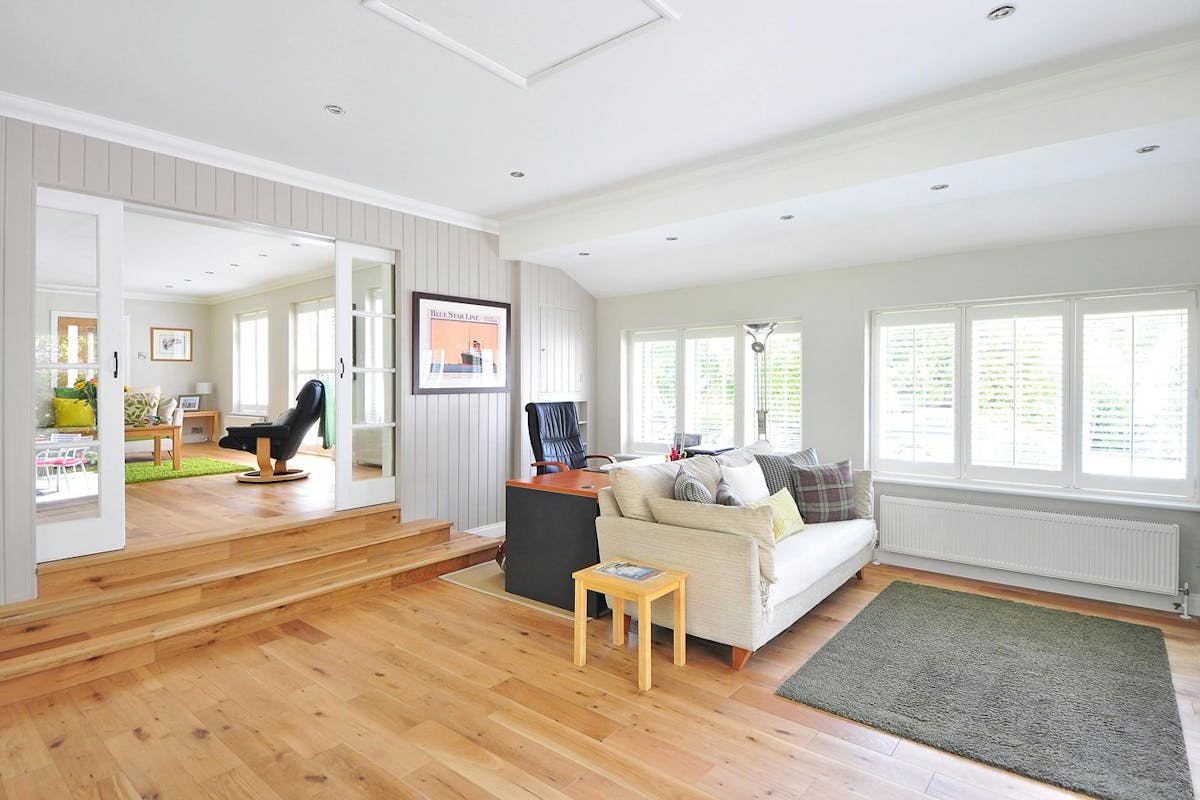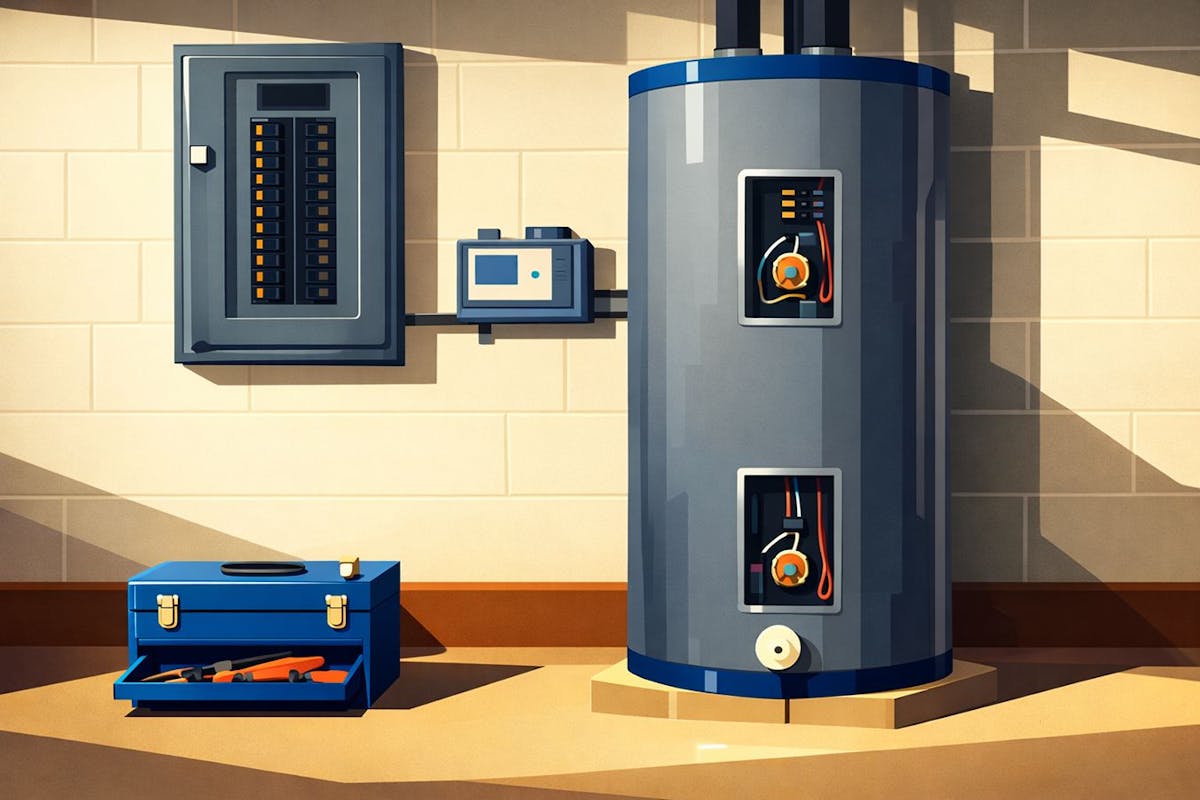What Is Solar Heat Gain and How Does it Impact Your Energy Bill?
Last edited
Author
Andrew Giermak
Solar and Electrification Writer and Editor
Editor
Andrew Blok
Electrification and Solar Writer and Editor

The sun provides free and effectively infinite natural energy in the form of light and heat. Natural solar heat can make your home warmer whether you want it to or not. This can raise or reduce your energy bills.
Understanding how to manage this solar heat gain can create a more comfortable and energy-efficient home. This guide will help you understand solar heat gain and how you can use it to your benefit and even savings.
See how much you can save with home energy changes
What is Solar Heat Gain?
Solar heat gain is the natural heat from the sun’s radiation increasing a building’s temperature. Sunlight can come through windows, be absorbed into the walls or roof, or even by floors and furniture.
This radiant heat can be a benefit in cooler weather when it can save you running your heat some, or a negative in warmer climates and times of the year when it’ll lead to your AC running more.
Before you turn your thermostat up or down, try some of these tips and ideas with windows, doors, skylights, insulation, and landscaping.
What Is the Solar Heat Gain Coefficient?
Solar heat gain coefficient (SHGC) is a measurement of how much of the sun's heat is transmitted through a surface, be it a window, wall, roof, or any material. The SHGC is a number between 0 and 1. The lower or closer to 0, the less solar heat will move through a surface. The SHGC number can be found on Energy Star labels on a product.
The SHGC of a window or a door is an important metric for understanding the product’s energy efficiency and fit for your purposes. SHGC is particularly important for homes in hot climates, as a low SHGC can significantly reduce solar heat gain inside your home and the load on your cooling system. For example, a window with an SHGC of 0.25 will let in 50% less heat than an older window with an SHGC of 0.5.
See how much you can save with home energy changes
When Should You Look for a Solar Heat Gain Coefficient?
If you’re shopping for new doors, windows, or skylights, it makes sense to take energy efficiency into account. Doors (if it contains a window), windows, and skylights have a SHGC. The lower the SHGC is, the less solar heat passed through it.
SHGC is an important consideration no matter your area’s climate. In warmer climates, where you’re cooling your home for most of the year, a low SHGC, 0.4 or lower, is recommended.
In a colder climate, where saving on your heating energy usage is more important for more of the year, you’ll want a window with a SHGC of 0.4 or higher. You want the solar heat to help warm the interior of your home for parts of the fall, winter, and spring.
You can find the SHGC on the Energy Star label, which is required on all Energy Star-certified windows, doors, and skylights.
Credit: energystar.gov
Recommended minimum Solar Heat Gain Coefficient by climate zone
| Zone | SHGC |
|---|---|
| Northern | 0.17 |
| North-Central | 0.40 |
| South-Central | 0.23 |
| Southern | 0.23 |
Credit: energystar.gov
The Sun and Energy Efficiency at Home
Along with solar heat gain through windows, doors, and other parts of the exterior of a home, heat loss is a consideration, too. Upgrading to new energy-efficient windows and energy-efficient doors can reduce heat loss and heat gain, leading to saving money year-around. If buying and installing new windows and doors isn’t your plan right now, tasks like caulking and weatherstripping stop drafts that waste energy.
More projects around the house can let you take advantage of natural solar energy to save money. For instance, using curtains, blinds, shutters, and even strategically planted trees for shade, let you have shade or sun when and where you want in your home. Proper insulation in your attic, walls, and crawl space helps keep temperatures and the environment in your home consistent and efficient to manage with your HVAC system.
A major way to use solar power for most or all of your home’s power needs, and to bring down your energy costs, is with home solar panels. See how solar panels could work for your home today or explore the potential other energy upgrades using Palmetto’s Savings Maximizer.
See what home electrification can do for you:
Frequently Asked Questions
Is solar heat gain bad?
Not at all. When you want more heat in your home, such as most winters for most of us, you can use solar heat gain for free heating which can save you money and energy consumption.
How do windows and doors affect home energy efficiency?
Windows and doors are part of a home's envelope, and they have a significant impact on energy efficiency. They are a source of heat loss and heat gain which can be a benefit or problem in terms of energy efficiency, cost, and comfort. Upgrading or maintaining the condition of windows and doors can save money and energy.



